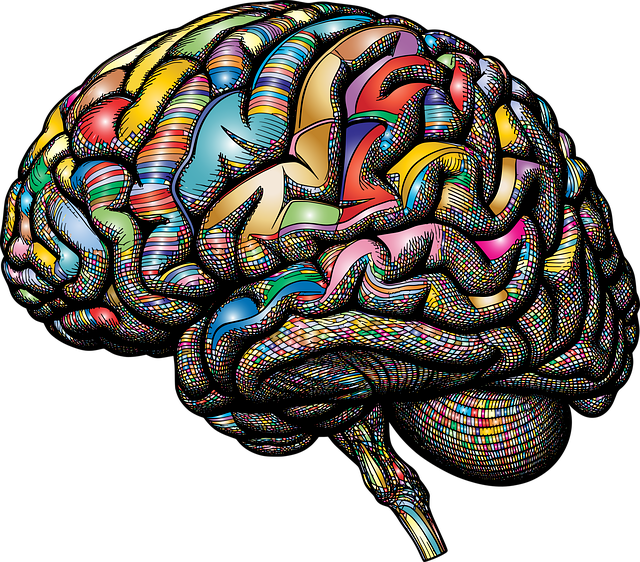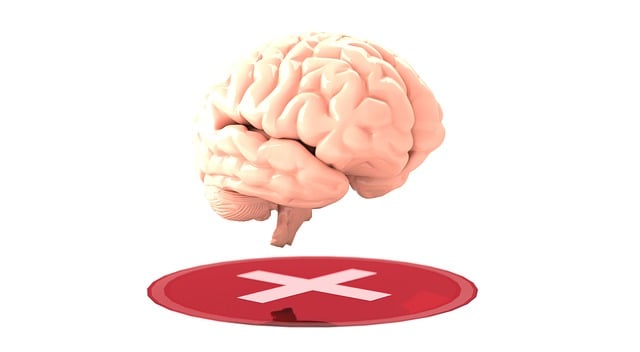In today's fast-paced world, mental wellness is crucial, and self-assessment tools help individuals understand their mental health state through introspection. The Denver Model, a structured approach to enhancing communication between therapists and clients, addresses Denver couples communication issues by promoting active listening, empathy, and open dialogue. Integrating CBT, mindfulness practices, and communication skill-building into self-assessment tools provides deep insights into an individual's mental health, facilitating issue identification and tailored suggestions for improvement. User-friendly and accurate assessments, featuring intuitive interfaces and diverse questions, encourage honest reflection while preserving privacy. Success in developing these tools is measured through positive client outcomes, data analysis, continuous improvement, cultural sensitivity, and risk management planning, ensuring their reliability and adaptability over time.
Mental wellness self-assessment tools play a crucial role in empowering individuals to take charge of their mental health. As awareness grows about the importance of mental well-being, these tools offer accessible solutions for initial screening and self-reflection. This article explores the development of effective assessment tools, drawing from frameworks like the Denver Model, which emphasizes open communication. We discuss integrating therapeutic techniques, ensuring user-friendliness, and the significance of continuous improvement based on evaluation data, particularly relevant in addressing Denver couples’ communication issues and therapy challenges.
- Understanding the Need for Self-Assessment Tools in Mental Wellness
- The Denver Model: A Framework for Effective Communication
- Integrating Therapy Techniques into Self-Assessment
- Designing User-Friendly and Accurate Assessment Tools
- Measuring Success: Evaluation and Continuous Improvement
Understanding the Need for Self-Assessment Tools in Mental Wellness

In today’s fast-paced world, mental wellness is a cornerstone of overall health and well-being. However, recognizing and addressing subtle issues within this realm can often be challenging for individuals, especially when facing life’s pressures. This is where self-assessment tools prove invaluable. These tools empower people to take an active role in understanding their mental health state, facilitating early detection of potential problems that might otherwise go unnoticed. By providing a structured approach to introspection, they encourage individuals to explore their thoughts, emotions, and behaviors, ultimately fostering self-awareness.
For instance, in Denver, where cultural diversity is rich, integrating these tools into therapy sessions for couples facing communication issues can be transformative. Understanding one’s mental wellness state allows for more effective navigation of relationship challenges, especially when considering the impact of cultural differences. The development of robust self-assessment tools, backed by sound psychological principles like those espoused in Mind Over Matter philosophies, can enhance healthcare provider cultural competency training. This ensures that professionals are equipped to offer tailored support, promoting inner strength development and improved outcomes for clients from diverse backgrounds.
The Denver Model: A Framework for Effective Communication

The Denver Model offers a structured approach to enhancing communication between therapists and clients, particularly in addressing Denver couples communication issues. This framework emphasizes the importance of active listening, empathy, and open dialogue. By creating a safe space for clients to express their thoughts and feelings, therapists can gain valuable insights into their emotional states and any underlying challenges.
Effective communication fosters self-awareness, which is crucial for emotional regulation, self-esteem improvement, and resilience building. Through the Denver Model, therapists can guide clients in identifying and understanding their emotions, helping them develop healthy coping mechanisms and navigate their relationships with greater ease. This method promotes a collaborative environment, ensuring that both parties actively participate in the healing process.
Integrating Therapy Techniques into Self-Assessment

Integrating therapy techniques into self-assessment tools is a powerful strategy to empower individuals in their mental wellness journey. By incorporating elements from various therapeutic approaches, such as cognitive-behavioural therapy (CBT), mindfulness practices, and communication skill-building, these assessments can provide comprehensive insights into an individual’s mental health landscape. For instance, a self-assessment could include questions designed to uncover negative thought patterns common in depression prevention, while also encouraging users to reflect on their emotional responses and communication styles, particularly in the context of Denver Couples Communication Issues Therapy.
This holistic integration allows for not only identifying potential issues but also offering tailored recommendations for improvement. For example, a tool might suggest specific mindfulness exercises or journal prompts aimed at enhancing self-care routine development for better mental health. Moreover, by leveraging public awareness campaigns development around mental wellness, these tools can educate users on the importance of proactive mental health management, encouraging them to seek support and make positive changes in their lives, thus reducing the impact of communication issues in relationships.
Designing User-Friendly and Accurate Assessment Tools

Creating user-friendly and accurate mental wellness self-assessment tools is paramount to effective therapy and support. These assessments should be designed with an intuitive interface, clear language, and a diverse range of questions tailored to address various aspects of mental health, including Denver Couples Communication Issues Therapy. The goal is to make the process as non-intrusive and engaging as possible, encouraging users to reflect honestly while ensuring their privacy.
Integrating features from Burnout Prevention Strategies for Healthcare Providers can enhance these tools. For instance, incorporating methods like mindfulness exercises or stress reduction techniques within the assessment can not only improve user experience but also provide immediate support. Similarly, leveraging Mental Wellness Podcast Series Production as a supplement can offer dynamic and accessible resources, allowing users to delve deeper into specific topics related to their self-assessments. By combining these approaches, tools designed for mental wellness self-assessment in Denver can become comprehensive resources that not only gauge an individual’s current state but also empower them with actionable steps towards improved well-being.
Measuring Success: Evaluation and Continuous Improvement

Measuring success is a vital aspect of developing any self-assessment tool, especially when it comes to mental wellness. In the context of Denver Couples Communication Issues Therapy, for example, evaluating the effectiveness of an assessment requires a multi-faceted approach. It’s not just about achieving accurate diagnoses but also fostering positive outcomes for clients. This involves collecting and analyzing data from various sources, such as client feedback, therapy session observations, and follow-up assessments, to gauge the tool’s impact on mental health and relationship dynamics.
Continuous improvement is key to ensuring these tools remain relevant and effective in addressing Denver Couples Communication Issues Therapy challenges. Incorporating cultural sensitivity in mental healthcare practice is essential, as it allows the assessment to cater to a diverse range of clients with varying backgrounds and experiences. Additionally, risk management planning for mental health professionals should be integrated into the development process, focusing on stress management strategies and ensuring a safe environment for both practitioners and patients. Regular reviews and updates based on these evaluations will enhance the tool’s reliability and adaptability over time.
Mental wellness self-assessment tools play a pivotal role in empowering individuals to take charge of their mental health. By drawing from frameworks like the Denver Model, integrating effective therapy techniques, and prioritizing user-friendliness, we can develop accurate and impactful tools. Continuous evaluation and improvement ensure these assessments remain relevant and beneficial. Incorporating insights from Denver couples communication issues and therapy techniques enriches the self-assessment experience, fostering better mental wellness outcomes for all users.














